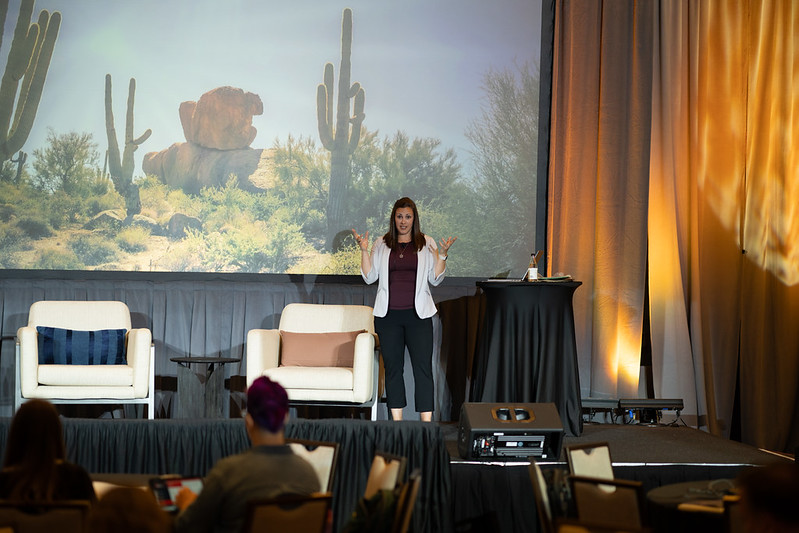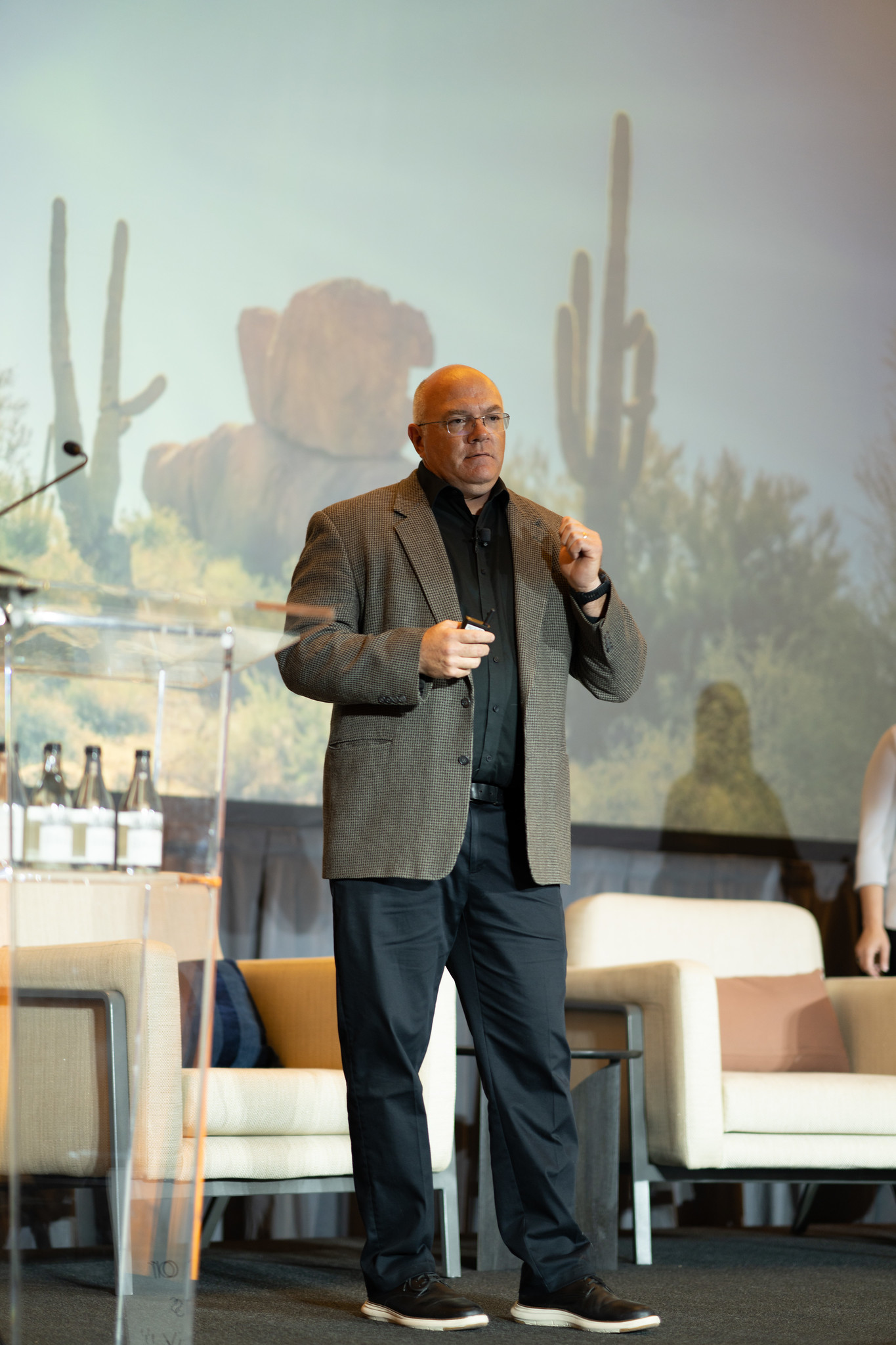When it comes to recruiting, hiring, and retaining individuals with disabilities, most of the work happens in the middle. After onboarding, do your processes, communities, or culture make your employees feel a sense of belonging? Regardless of your title, everyone plays a role in making this a reality–from executives all the way to individual contributors. During DirectEmployers 2025 Annual Meeting & Conference (DEAMcon25) in Scottsdale this past May, Meaghan Walls & Andy Traub from the Center for Disability Inclusion shared insights and tips to support the disability inclusion journey and the conversation was so impactful that we decided to share it with a wider audience via the DE Talk podcast. Take a quick peek at the episode below!
Meaghan Walls:

Meaghan Walls presents on the DEAMcon25 stage.
So, we started off this conversation talking about mindset because a lot of culture shift is not just acknowledging where we are and where we want to go and what’s in the way, but where our mindset is along that journey as well, around accommodations. There are mindsets all over the map from, oh, this is such a headache. There’s so much paperwork. It’s so formal to on the other side of things from the employee being like, I don’t even know who to ask or what the process is or just what their overall experience is, good or bad. And so this slide that’s up here, it was actually created by GAO and really just in terms of framing a mindset around accommodations, I could talk about this forever, but what I’ll say is that in the accommodation piece, that helps create equity in how people have tools to do the things that they need to do for their work.
If we make that our minimum expectation, this is just the standard. Everybody’s going to get the tools that they need to be most successful in their job. It gives us space to look at some of those accommodations in the light of how could they become best practices? How can we integrate these into our culture so that it’s more streamlined or people don’t have to make as many accommodation requests because we’ve started to build some of these elements in. And so, if we then do that, it gives us some space to really build a culture of disability inclusion and really have a more accessible culture and environment and policies and practices. Here are a couple of questions. Show of hands. How many of you in two seconds could tell me where your accommodation policy is?
Andy Traub:
Raise your hands. Come on. Come on.
Meaghan Walls:
Okay, small handful, maybe two handfuls. How many of you could in two seconds start being able to tell me what your accommodation process is step-by-step? Even fewer hands. How many of you know the exact person you need to talk to get that process started?

Andy Traub looks out at the DEAMcon25 audience.
Andy Traub:
HR.
Meaghan Walls:
Right? But ideally, everyone’s hands would go up because that means the information is out there and well communicated. And it’s part of just general conversations. It’s not so hard to access. There are a lot of things that you can do. So, some examples that help make that accommodation piece more of a just cultural norm and less request to get what you need– Andy, do you want to share what some of the partners are doing?
Listen to the full episode now to discover unique ways employers are handling accommodations, the role of data in predicting and simplifying accommodation requests, and other invaluable tips and best practices that take you from a culture of self-identification to self disclosure. Want more episodes of the DE Talk podcast? Stay tuned–we’ll continue the disability inclusion conversation next week with another new episode to round out National Disability Employment Awareness Month (NDEAM)!
